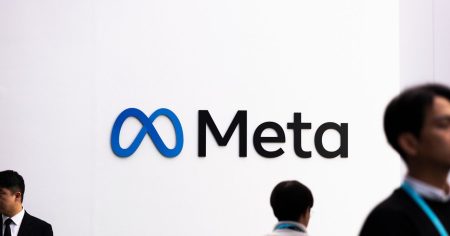Rebecca Love is the Chief Clinical Officer at IntelyCare, the first nurse featured on Ted.com and a leader in nurse workforce innovation.
Integrating artificial intelligence (AI) into healthcare tends to generate a lot of buzz, reinvigorating the attention and enthusiasm for the benefits of its application. At the heart of AI’s potential lies its remarkable capacity to harness and analyze extensive patient data to facilitate diagnostic accuracy. AI algorithms can process disparate information, from medical histories and lab results to imaging data, extracting insights that might elude human perception.
This precision-driven approach could significantly reduce the margin of error in diagnosis, leading to earlier and more effective treatments. With the correct data at providers’ fingertips, I believe the practice of overprescribing tests and treatment can be substantially reduced or even eliminated.
The Promise: Enabling Precise And Swift Diagnoses
Research shows that algorithms outperform radiologists. In 2020, to evaluate the performance of AI in predicting breast cancer, an international team of researchers designed and trained a computer model using anonymized X-ray images from a substantial pool of women. The model was able to outperform the mammogram readings from six radiologists.
As has been proven in many industries, AI can impact the time spent on administrative tasks, eliminating many menial, mundane, necessary, laborious and time-consuming activities. Administrative complexity (the bane of every provider’s professional experience) can be alleviated with AI-enabled systems that wrangle the information and automatically process it—for example, to support the digitization of electronic health records (EHR).
I believe we must also consider how to use AI technology to spread affordability and access to healthcare to populations typically left out in the cold. Provider shortages and hospital closures are on the rise, and while this affects all Americans, it doesn’t affect us all equally. If you have wealth, live in an urban or suburban area and have a certain level of health literacy, you can typically find alternatives.
AI has the potential to make a substantial difference in healthcare delivery and patient outcomes, bridging healthcare gaps by democratizing access to accurate diagnostics and medical care. According to a study by the Global Innovation Center, “Nearly one-third of the U.S. population (121 million) lives in a healthcare desert, an area with insufficient access to primary care providers, pharmacies, hospitals, trauma centers, community health centers, or more.” The Government Accounting Office reports that 4% of rural hospitals closed between 2013 and 2020. Many urban areas are also impacted.
But medical deserts aren’t just defined by geography; socioeconomic factors also come into play. Lack of access to care can also result from not having insurance or internet access or a language barrier.
AI-enabled technology can help mitigate the impact of these deserts. Regardless of geographical location or the availability of medical professionals, AI-powered diagnostic tools could provide individuals with reliable health insights, leveling the playing field and expanding healthcare access. For example, software that uses AI to detect abnormalities during labor could help protect mothers and babies during childbirth if they don’t have immediate access to a clinician. In some cases, depending on the healthcare issue, the only requirement is that the patient has access to a smartphone to capture the data for diagnosis.
Navigating The Challenges
AI can transform the healthcare industry; the technology’s ability to process vast amounts of information and rapidly compute complex data far surpasses human capabilities. However, there are challenges to consider. The healthcare industry has yet to determine how to navigate the profound implications for medical professionals and patients and ensure we move forward in a manner that realizes AI’s promise without adding additional risks. As AI systems become increasingly involved in medical decision making, another critical concern arises: the balance between human autonomy and machine guidance. Physicians and nurses alike are grappling with delineating their expertise and AI’s recommendations.
Also, the issue of liability emerges as AI’s role expands. If a machine-driven diagnosis proves inaccurate, who assumes responsibility? This dilemma mirrors the broader debate around accountability for AI actions. It’s important to strike a balance between AI’s value in augmenting healthcare decision making and safeguarding against potentially incorrect recommendations.
There are also structural challenges to the healthcare industry that make it difficult to go full-in on AI. Health systems tend to operate in silos and don’t share data. As recently as 2021, fax machines were still used by 70% of hospitals to share medical data.
Conclusion
I believe the benefits of leveraging AI—enabling better patient outcomes, reducing the administrative burden for healthcare providers and health systems and increasing affordability and access for all populations, no matter where they live or their economic situation—far outweigh the pitfalls. AI has the potential to reduce costs and increase access to healthcare for every citizen—a positive impact on individuals, families, businesses and communities. During a panel on healthcare deserts at this past SXSW, Howard Gruverman, COO at OnMed, said, “It’s the community getting involved in health and meeting people where they live, work and play. One company, one employer, one government, one university, one nonprofit can’t do it alone.”
However, the journey ahead demands a collaborative effort involving the entire community of stakeholders: medical professionals, technologists, ethicists, policymakers, business leaders and patients. Ultimately, the promise of AI in healthcare lies not just in its capabilities but in our ability to wield its potential responsibly for the betterment of human health.
Forbes Business Council is the foremost growth and networking organization for business owners and leaders. Do I qualify?
Read the full article here










